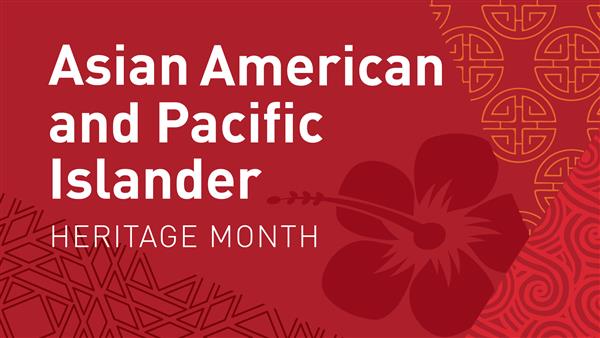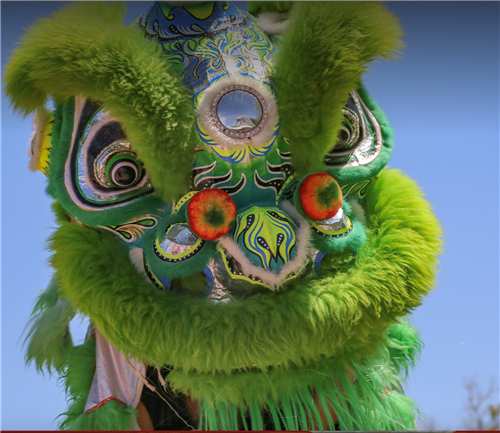-
Asian American and Pacific Islander (AAPI) Heritage Month is celebrated each May to recognize the significant contributions and influence of Asian Americans and Pacific Islander Americans to the history, culture, and achievements of the United States. This month honors the rich diversity of Asian and Pacific Islander communities, ranging from East Asia, Southeast Asia, and South Asia to the Pacific Islands of Melanesia, Micronesia, and Polynesia.
The celebration originated as a ten-day observance in 1978, thanks to the efforts of congressional staffers Jeanie Jew and Ruby Moy, and was later extended to the full month of May in 1990. May was specifically chosen to commemorate the arrival of the first Japanese immigrants to the United States on May 7, 1843, and to mark the anniversary of the completion of the transcontinental railroad on May 10, 1869, largely built by Chinese immigrants.
AAPI Month is a time to celebrate the enduring spirit and contributions of these communities through various events and educational activities that highlight their unique cultures, traditions, and histories. It's a vital part of our national narrative, fostering understanding and appreciation for the diversity and resilience of AAPI people.
-
Ways to Celebrate
Here are some specific ways that your school or team can celebrate AAPI heritage month:
- Learn about Asian holidays and traditions: Teach students about holidays such as Lunar New Year, Diwali, and Eid al-Fitr. Introduce students to traditional customs, such as decorating red lanterns and exchanging red envelopes during Lunar New Year.
- Highlight Asian cuisine: Showcase Asian cuisine in the cafeteria or organize a cooking competition featuring Asian dishes. This can be a fun way for students to learn about different ingredients and cooking methods used in Asian cuisine.
- Explore Asian art and calligraphy: Incorporate Asian art and calligraphy into art classes or organize a workshop with a local artist. Students can learn about the history of Asian art and calligraphy and try their hand at creating their own masterpieces.
- Celebrate Asian literature: Feature Asian literature in English classes or organize a book club featuring Asian authors. This can be a way to introduce students to new perspectives and diverse voices in literature.
- Highlight Asian music and dance: Organize a cultural performance featuring Asian music and dance. This can be a way for students to learn about the different styles of music and dance in Asian culture and appreciate the artistry and beauty of these traditions.
- Invite AAPI guest speakers, such as authors, musicians, and community leaders, to speak about their experiences, share their stories, and educate students about AAPI culture and history.
- Host a film screening of movies that highlight AAPI culture and experiences. This can be followed by a discussion or a Q&A session with the students.
Resources from the Academic Divison
-
Resources for the Classroom
Asian/Pacific Islander Authors: Sora eBook and audiobook collection - Sora collection highlighting authors from East and South Asian countries as well as Americans who identify as Asian and/or Pacific Islander.
History Liberated: Sora eBook and audiobook collection - Sora collection highlighting the perspectives of historically marginalized groups to provide a well-rounded view of our nation's past and present.
Celebrate Asian Pacific Culture - Links to Units - Units feature information for author studies and illustrator spotlights; video links, educator resource links; some ideas for lessons and art activities; links to music and culture; and ideas for book displays, plus more. More content will be added throughout the year. Three authors/illustrators are featured per unit.
Asian Authors and Illustrators - Click on the author/illustrator name and it links you to their home page or a website that features that particular person. On the list 3 books featured per name. Contains information on checking out Sora eBooks.
Denver Public Library: Denver Library has curated a list of books that acknowledge the wealth of histories, cultures, contributions, and influences encompassed within the Asian American and Pacific Islander (AAPI) diaspora
Library of Congress AAPI Resource Guide: This guide provides research strategies and pointers to AAPI materials available both at the Library of Congress and online.
Denver AAPI Bar Association Podcast: A four episode series for AAPI month where local lawyers and judges talk about their identities, diversity, racial justice and how they’ve succeeded in their field
Smithsonian Asian Pacific American Center - A museum without walls, we present innovative, community-centered museum experiences throughout the United States and beyond.
We are not a stereotype | Learning Together - The Smithsonian Asian Pacific American Center is proud to present We are not a stereotype, a video series for educators, by educators. This series explores and challenges the complexity surrounding the term Asian Pacific American, breaking it down into topics that span multiple timelines, geographies, and identities.
Heritage iRL | Smithsonian Asian Pacific American Center - A web series engaging Asian American heritage "in real life," in progress, across a range of media and communities.
Zinn Education Project: Asian American Literature - collection of Asian American literature.
Asian American K-12 Resources - Resource created for the APALA & ALA ODLOS webinar “Confronting Xenophobia and Supporting Asian and Asian/Pacific American Communities during COVID-19” (Sarah Park Dahlen and Erika Lee, May 1, 2020) primarily to help librarians, educators, and caregivers understand Asian America, anti-Asian racism, bullying, and COVID-19. Also included
Calling for Student Submissions!
-
From May 1 through May 31, we will be joining in local and national celebrations of Asian American and Pacific Islander Heritage Month. We want to feature how our students are learning about, connecting with, interpreting and celebrating this cultural moment through their writing, artwork, music, photos and videos. We’ll share submissions on our website and social media channels at the end of the celebration. Please submit your work by May 20 for consideration. View the submission form for additional details.
-
2021 AAPI Team Member Highlights!
Asian American and Pacific Islander Heritage Month: VanTrinh’s Story
Published on dpsk12.org, May 3, 2021
Student Shares their Asian American and Pacific Islander Heroes
Published on dpsk12.org, May 17, 2021















